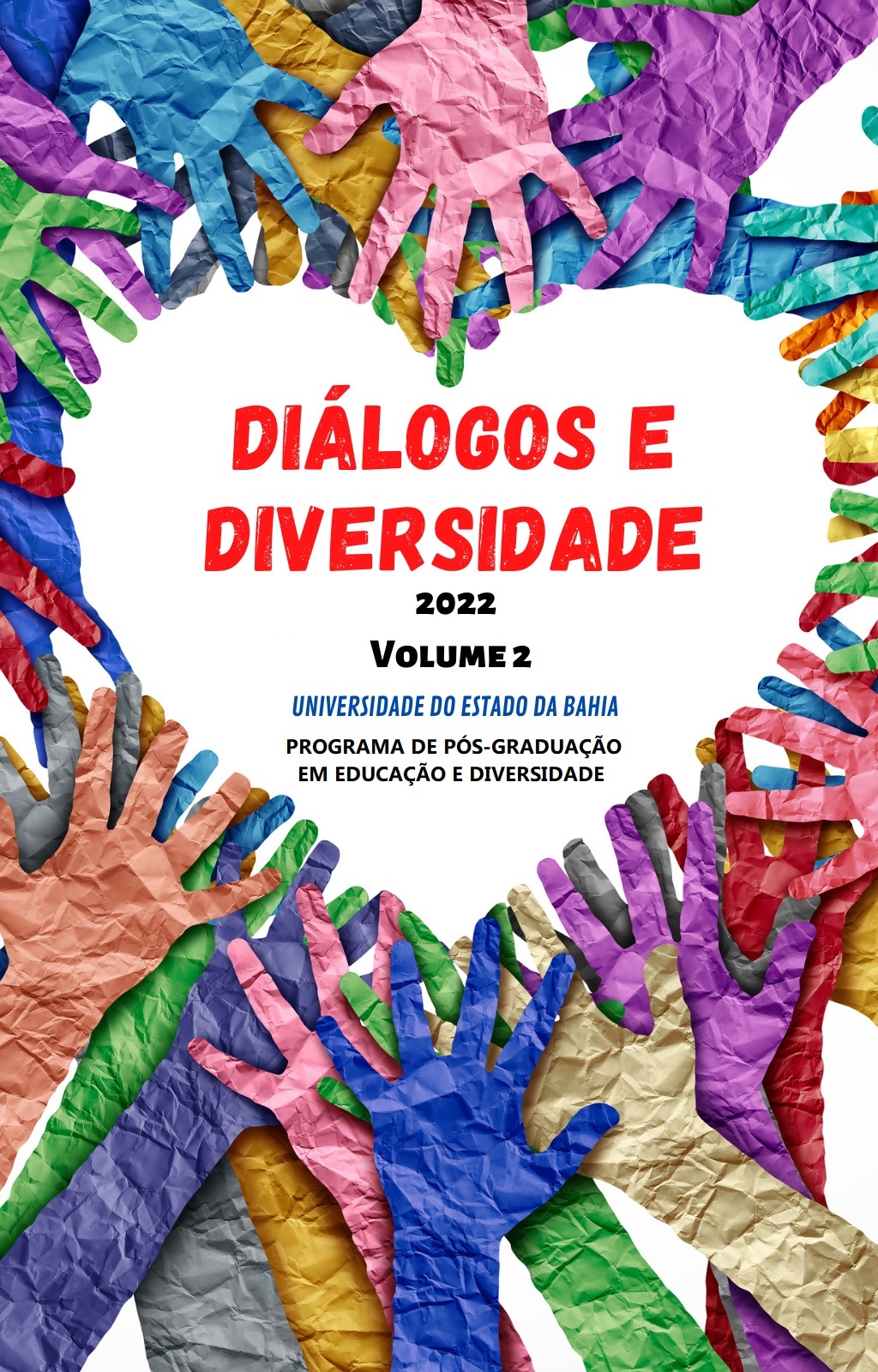UM QUILOMBO URBANO: A EXPERIÊNCIA EDUCATIVA NA COMUNIDADE DA VILA ÁFRICA COMO PRÁTICA DE RESISTÊNCIA, CULTURA E ALTERIDADE
Keywords:
urban quilombo, quilombismo, community, education, Vila África.Abstract
This work reflects the socio-educational actions developed by the urban black community known as Vila África, located in the municipality of Piracicaba-SP to preserve the memory and culture based on African ancestry. To think of this territory as an urban quilombo, we resort to the concept proposed by Abdias do Nascimento (2002; 2014) regarding quilombism. According to the author's analysis, all black communities that base their organization on the epistemic heritage from the African continent can be recognized as part of a quilombola unit. Although there are some differences between these quilombola organizations and the communities of quilombo remnants in more distant areas, there are many points of proximity between them. Some of these aspects are: the search for citizenship, the fight against racism and the recognition of the territory. The concern with Afro-Brazilian cultures and their teaching-learning methods in dialogue with school education contribute to the preservation of memory and identification with the territory, whether urban or rural.
Downloads
References
AMÉRICO, Marcia Cristina. Práticas coletivas na constituição da vida quilombola: história da comunidade tradicional de Ivaporunduva. São Carlos-SP: Pedro e João Editores, 2013.
ANTONIO, Marcia Maria; FERREIRA, Fernanda. Quilombo Urbano Vila África: Dança, tranças e amarrações. Disponível em https://www.sescsp.org.br/comunidade-vila-africa-um-quilombo-urbano/. Acesso em 17 de fevereiro de 2022.
CANDIDO, Antonio. Os parceiros do Rio Bonito: estudo sobre o caipira paulista e a transformação dos seus meios de vida. 17ed. São Paulo: Edusp, 2017.
CONSELHO NACIONAL DE EDUCAÇÃO (CNE). Diretrizes curriculares nacionais para a educação das relações étnico-raciais e para o ensino de história e Cultura afro-brasileira e africana. Brasília, 2004. Disponível em: https://download.inep.gov.br/publicacoes/diversas/temas_interdisciplinares/diretrizes_curriculares_nacionais_para_a_educacao_das_relacoes_etnico_raciais_e_para_o_ensino_de_historia_e_cultura_afro_brasileira_e_africana.pdf
FU-KIAU, Kimbwandende Kia Bunseki. African cosmology of the bantu-kongo: principles of life and living. 2ed. Nova York: Athelia Henrietta Press, 2001.
GONÇALVES E SILVA, Petronilha Beatriz. Aprendizagem e ensino das africanidades brasileiras. In: Kabengele Munanga (org). 2ed. Superando o racismo na escola. Ministério da Educação, Secretaria de Educação Continuada, Alfabetização e Diversidade, Brasília: 2005.
HABTE, Aklilu; WAGAW, Teshome; AJAYI, Ade. Educação e mudança social. In: MAZRUI, Ali. História Geral da África 8. 2ed. Rev. Brasília: UNESCO, 2010.
SANTOS, José. Bairro Vila Independência e a sua tradicional Vila África. Disponível em https://www.vozdosbairrospiracicaba.com.br/2021/05/o-bairro-vila-independencia-e-rica-vila.html. Consulta em 17 de fevereiro de 2022.
MAESTRI, Mário. Uma defesa do quilombo. In: FIABANI, Adelmir. Mato, palhoça e pilão: o quilombo, da escravidão às comunidades remanescentes (1532-2004).2ed. São Paulo: Expressão Popular, 2012.
MAGALHÃES, Ana Flávia; SANTOS, José Eduardo Ferreira dos; SANTANA; Tiganá, et alli.; SANTANA, Bianca; CARNEIRO, Natália (Organizadoras). Insumos para ancoragem de memórias negras. São Paulo: Oralituras, Casa Sueli Carneiro, Fundação Rosa Luxemburgo, 2021.
MONTEIRO, Noedi. “Campos de Araraquara e quilombo Corumbatahy: extremos da capitania de São Paulo à expansão oeste do Brasil-Colônia (1700-1804)”. In: Revista do Instituto Histórico e Geográfico de Piracicaba. Piracicaba-SP, ano 26, n. 24, 2018, pp. 103-171.
MUNANGA, Kabengele. Origem e histórico do quilombo na África. In: Revista USP, ed. 28, São Paulo-SP, dez\fev. 1995\1996, pp.56-63.
NASCIMENTO, Abdias do. O quilombismo. 2.ed. Brasília/Rio de Janeiro: Fundação Palmares/OR Editor produtor, 2002.
_______________________. Quilombismo: um conceito emergente do prcesso histórico-cultural da população afro-brasileira. In: NASCIMENTO, Elisa Larkin (Org). Afrocentricidade: uma abordagem epistemológica inovadora. 1ed. São Paulo: Selo Negro, 2014.
NASCIMENTO, Beatriz. O conceito de quilombo e a resistência cultural negra. In: Afrodiáspora n.6-7, 1985, pp. 41-49.
NUNES, Georgina Helena Lima. Educação quilombola. In: Orientações e ações para a educação das relações étnico-raciais. Brasília: SECAD, 2006.
OLIVEIRA, Fernando Bueno; D´Abadia, Maria Idelma Vieira. Territórios quilombolas em contextos rurais e urbanos brasileiros. In: Elisée, Rev. Geo, UEG-Anapólis, V.4, N.2, jul/dez de 2015, p.257-275.
PAULA JUNIOR, Antonio Filogenio de. Educação e oralidade no oeste africano pela representação de Amadou Hampaté Bâ. Dissertação de mestrado defendida no Programa de Pós-graduação em Educação da Universidade Metodista de Piracicaba. Piracicaba-SP: UNIMEP, 2014.
______________________________. A Caiumba: ética e estética bantu no oeste paulista. In: ARTEFILOSOFIA, V. 15, Nº28, Abril de 2020, p. 46-65.
PIRES, Cornélio. Conversas ao pé do fogo: estudinhos – costumes – contos – anedotas – cenas da escravidão. Itus-SP: Ottoni editora, 2002.
SACRITÁN, J. Gimeno. O Currículo: uma Reflexão sobre a Prática. 3. ed. Porto Alegre: Artmed, 2000.
LUIZ, Viviane Marinho. O quilombo Ivaporunduva e o enunciado das gerações. São Carlos-SP: Pedro e João editores, 2013.
Downloads
Published
How to Cite
Issue
Section
License
Direitos Autorais
A submissão de originais para a Revista Diálogos e Diversidade (RDD) implica na transferência, pelas(os) autoras(es), dos direitos de publicação. Os direitos autorais para os manuscritos publicados nesta revista são das(os) autoras(es), com direitos da RDD sobre a primeira publicação. As(os) autoras(es) somente poderão utilizar os mesmos resultados em outras publicações indicando explicitamente a RDD como o meio da publicação original.
Licença Creative Commons
Exceto onde especificado diferentemente, aplicam-se à matéria publicada neste periódico os termos de uma licença Creative Commons Attribution-ShareAlike 4.0 International License, que permite copiar e redistribuir o material em qualquer suporte ou formato, adaptar, remixar, transformar, e criar a partir do material para qualquer fim, mesmo que comercial, dando o crédito apropriado, prover um link para a licença e indicar se mudanças foram feitas, distribuindo as suas contribuições sob a mesma licença que o original, não podendo aplicar termos jurídicos ou medidas de caráter tecnológico que restrinjam legalmente outros de fazerem algo que a licença permita.



 Esta obra está licenciada com uma Licença
Esta obra está licenciada com uma Licença 